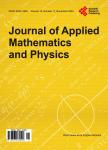Unexpected Twinning and Phase-Transition of the Indentation Standards, Their Transition Energies, and Scientific Dichotomy
Unexpected Twinning and Phase-Transition of the Indentation Standards, Their Transition Energies, and Scientific Dichotomy作者机构:Department of Chemistry University of Oldenburg Oldenburg Germany
出 版 物:《Journal of Applied Mathematics and Physics》 (应用数学与应用物理(英文))
年 卷 期:2024年第12卷第6期
页 面:2119-2159页
学科分类:08[工学] 080502[工学-材料学] 0805[工学-材料科学与工程(可授工学、理学学位)]
主 题:Aluminium Fused Quartz Copper Twinning Structural Phase-Transitions Undue Indentation Standards Data Manipulation ZerodurR Absolute Hardness
摘 要:The general use of aluminium as an indentation standard for the iteration of contact heights for the determination of ISO-14577 hardness and elastic modulus is challenged because of as yet not appreciated phase-changes in the physical force-depth standard curve that seemed to be secured by claims from 1992. The physical and mathematical analyses with closed formulas avoid the still world-wide standardized energy-law violation by not reserving 33.33% (h2 belief) (or 20% h3/2 physical law) of the loading force and thus energy for all not depth producing events but using 100% for the depth formation is a severe violation of the energy law. The not depth producing part of the indentation work cannot be done with zero energy! Both twinning and structural phase-transition onsets and normalized phase-transition energies are now calculated without iterations but with physically correct closed arithmetic equations. These are reported for Berkovich and cubecorner indentations, including their comparison on geometric grounds and an indentation standard without mechanical twinning is proposed. Characteristic data are reported. This is the first detection of the indentation twinning of aluminium at room temperature and the mechanical twinning of fused quartz is also new. Their disqualification as indentation standards is established. Also, the again found higher load phase-transitions disqualify aluminium and fused quartz as ISO-ASTM 14577 (International Standardization Organization and American Society for Testing and Materials) standards for the contact depth “hc iterations. The incorrect and still world-wide used black-box values for H- and Er-values (the latter are still falsely called “Young’s moduli even though they are not directional) and all mechanical properties that depend on them. They lack relation to bulk moduli from compression experiments. Experimentally obtained and so published force vs depth parabolas always follow the linear FN = kh3/2 + Fa equation, where



